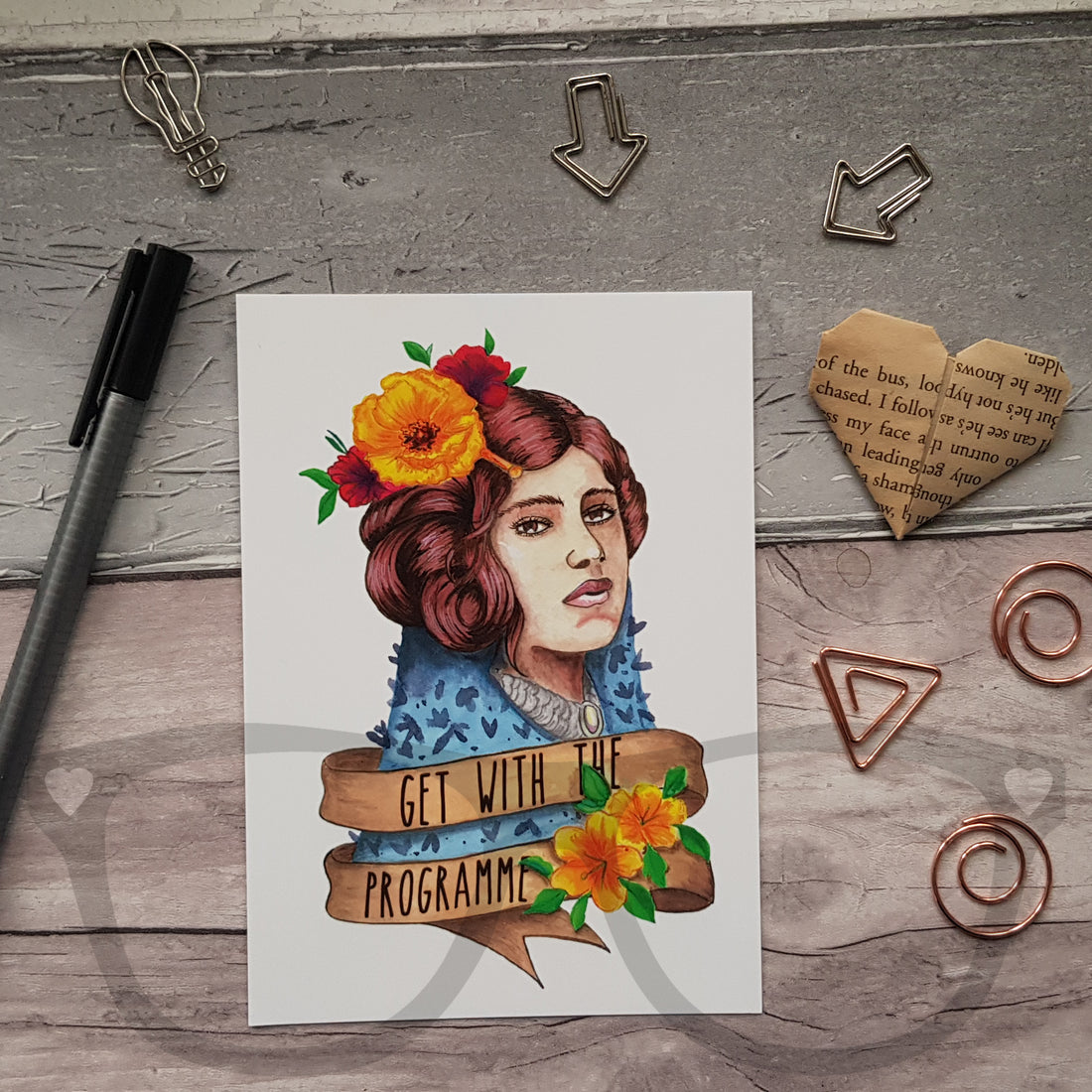
Ada Lovelace Day 2020, but who was she?
Augusta Ada King, Countess of Lovelace (10 December 1815 – 27 November 1852), also known as the first computer programmer, was born in a time where there was no such thing as domesticated electricity, the combustion engine didn’t exist, and there was definitely no such thing as personal computers. Yet Ada Lovelace imagined a world where technology could help human society beyond that of mere calculations.

An accomplished mathematician and writer, Ada worked with Charles Babbage to consider how his “Analytical Engine” would function. The engine was a government funded project designed to compete complicated calculations using the punchcard technology similar to that used by Jacquard weavers in France.
Her writings on how these punchcards could be used to programme Babbage’s machine was inspirational and despite the machine itself never being finished, it was Lovelace’s forethought that would forever be grounded in modern computing.
It wouldn’t be for over a hundred years after her death that the modern computer would be invented and another 50 after that that the domestic computer be available to households, but Ada has remained a hero to lots of computer programmers and developers, she is after all, the first computer programmer.
In 2009, Suw Charman-Anderson founded Ada Lovelace Day, an international day to celebrate achievements and to increase the profile of women in Science, Technology, Engineering and Maths (Also known as STEM), and it takes place the 2nd Tuesday of every October. This year (2020) it takes place on the 13th.
But why am I promoting and talking about it? I design and make clothes for geeks?
I have loved Ada before I even knew who Ada was. When I was young my dad had a Commodore Vic 20 and he showed me how to write a basic programme (I think I was 5 at the time), it has stayed with me ever since:
10 print “I Love Ada Lovelace”20 goto 10Run
The result would be the text in the speech marks repeating itself on the screen until you pressed “escape”. I remember it fondly and I would do it at any given opportunity. I wanted to be a computer programmer, I even tried to teach myself how to programme (turns out my ADHD brain wasn’t particularly good at teaching itself complex equations and such).
Even as an ICT teacher I would promote women in ICT as much as possible, my head of department even allowed me to do a display about women in ICT and it included Ada (naturally), Margaret Hamilton, and Grace Hopper among others. It was whilst doing the research for these amazing women that I discovered Ada Lovelace day and I have been an avid follower ever since.
Imagine my absolute joy at discovering that one of my heroes was buried in a local town (Hucknall, Nottinghamshire), and every year since I have paid my respects.

To me Ada is a hero, I may not be the maths genius she was, but I understand how important it is to have a creative mind when it comes to things like science and maths, her imagination knew no bounds.
After all Lovelace believed
“that intuition and imagination were critical to effectively applying mathematical and scientific concepts.”
For me creativity is an integral part of developing anything, whether it is designing something, or science and maths based. Creativity and Imagination are crucial to any form of development and Ada Lovelace was a pioneer in her day.
Despite her tragically short life, Lovelace’s legacy continues nearly 200 years later, and I am so very happy to be a part of that.
Further Reading:
https://wearetechwomen.com/inspirational-quotes-ada-lovelace-the-first-computer-programmer/
https://www.brainpickings.org/2014/12/10/ada-lovelace-walter-isaacson-innovators/
http://www.classiccmp.org/cini/pdf/Commodore/VIC-20%20User%27s%20Manual.pdf




